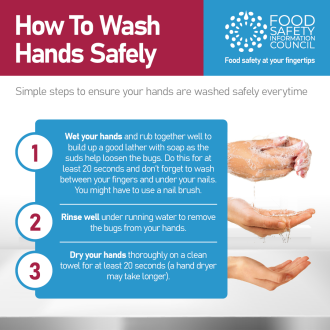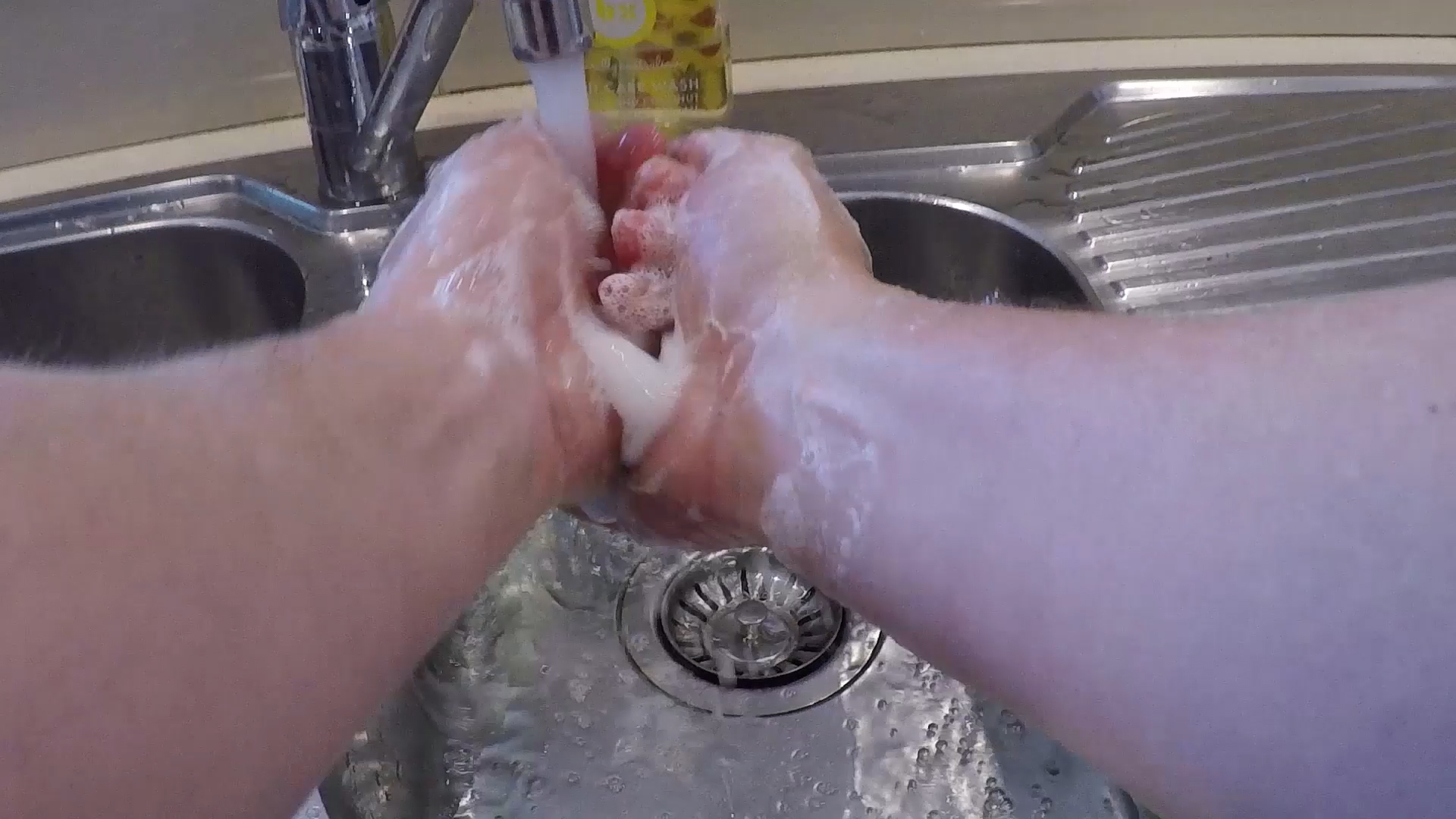Media release
From:
In the lead up to Global Handwashing Day 15 October 2025 the Food Safety Information Council has released its latest handwashing consumer research.
Lydia Buchtmann, Council CEO, said each year we have surveyed Australian consumers and asked whether they always wash their hands after going to the toilet and before handling food.
‘This year we asked slightly different questions about whether they always washed their hands after a ‘pee’ or after a ‘poo’ and the survey came up with some interesting (and disturbing) results,’ Ms Buchtmann said.
‘28% of men and 18% of women surveyed said they didn’t always wash their hands after a pee. But this is essential as toilets and bathrooms are also one of the favourite locations for harmful bacteria to hang out. Of even more concern, 13% of men and 11% of women said they didn’t always wash their hands after a poo. This is really a worry as faeces may contain harmful bacteria, viruses and even parasites.
‘If you don’t wash your hands after going to the toilet you will be spreading the risk of diseases, especially as 43% of men and 49% of women surveyed also admitted that they didn’t always wash their hands before handling food.
‘The Food Safety Information Council’s advice is to always wash and dry your hands:
before handling, preparing and eating food
after touching raw meat, fish, seafood, shell eggs or poultry
after using the toilet, attending to children’s (or others’) toileting, and changing nappies
after blowing your nose
after touching a pet, cleaning up animal pee, poo or vomit or cleaning cat litter trays
after gardening.
‘Our advice is to follow these four simple tips for hand washing correctly:
1. Wet your hands and rub them together well to build up a good lather with soap for at least 20 seconds and don’t forget to wash between your fingers and under your nails. You might have to use a nail brush.
2. Rinse well under running water to remove the bad bugs from your hands.
3. Dry your hands thoroughly on a clean towel for at least 20 seconds. Touching surfaces with moist hands encourages bugs to spread from the surface to your hands.
4. If no running water is available use an alcohol gel hand rub.
‘We have a handwashing education package including a video that can be downloaded from our website and we encourage people to watch the video and to put up the posters at home, in their workplace, or at school,’ Ms Buchtmann concluded.
Methodology
Survey conducted nationally amongst a statistically valid 1221 people aged 18+. Respondents were drawn from the online consumer panel managed by Lightspeed Research, OmniPoll’s online partner. Sample quotas were set for each state, city and regional area, by sex and age.Interviews were conducted online over the period August 21-26, 2025. To help reflect the overall population distribution, results were post-weighted to Australian Bureau of Statistics (2021 Census) data on education, age, sex and area.
Multimedia




 Australia; QLD
Australia; QLD



